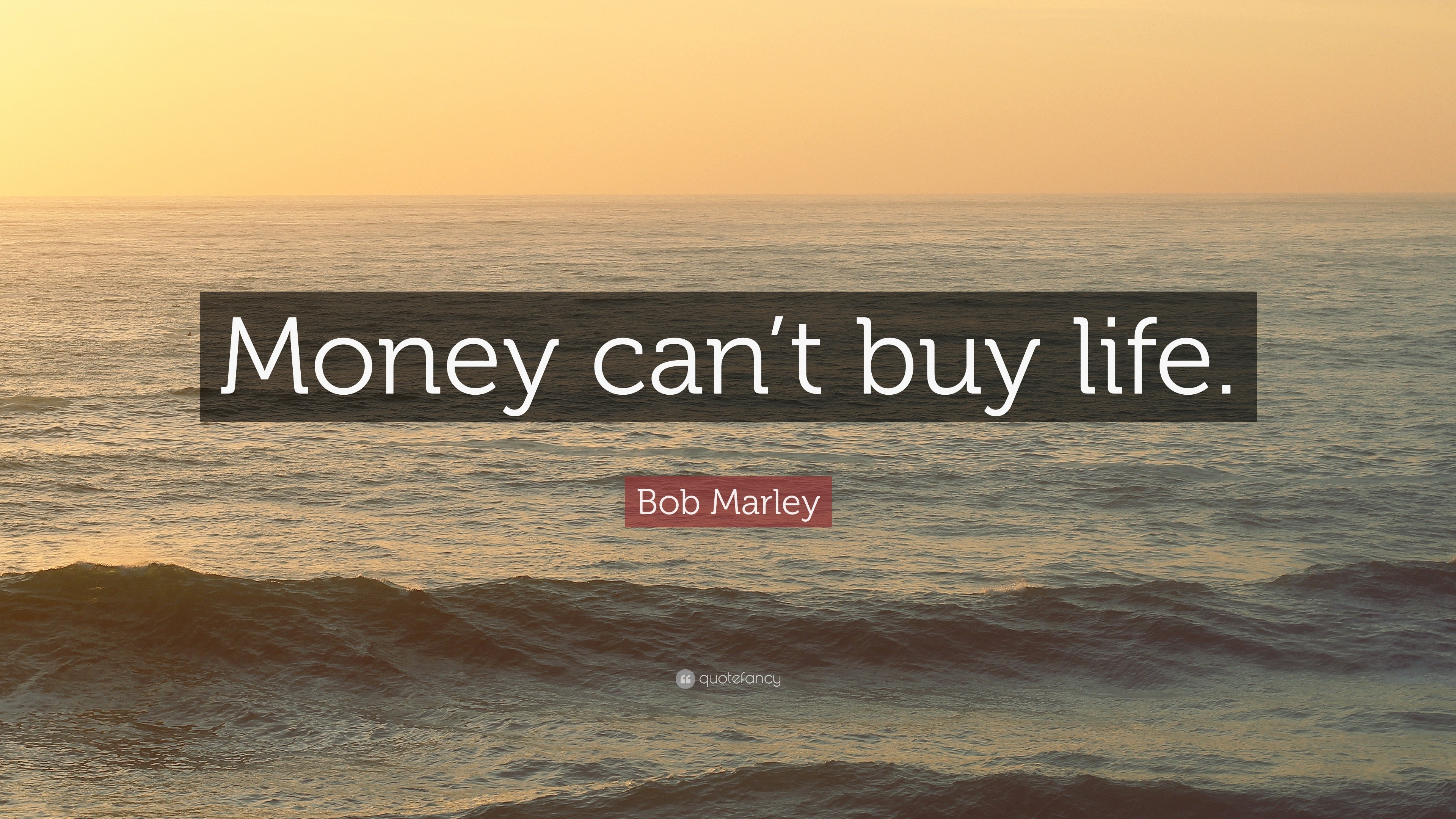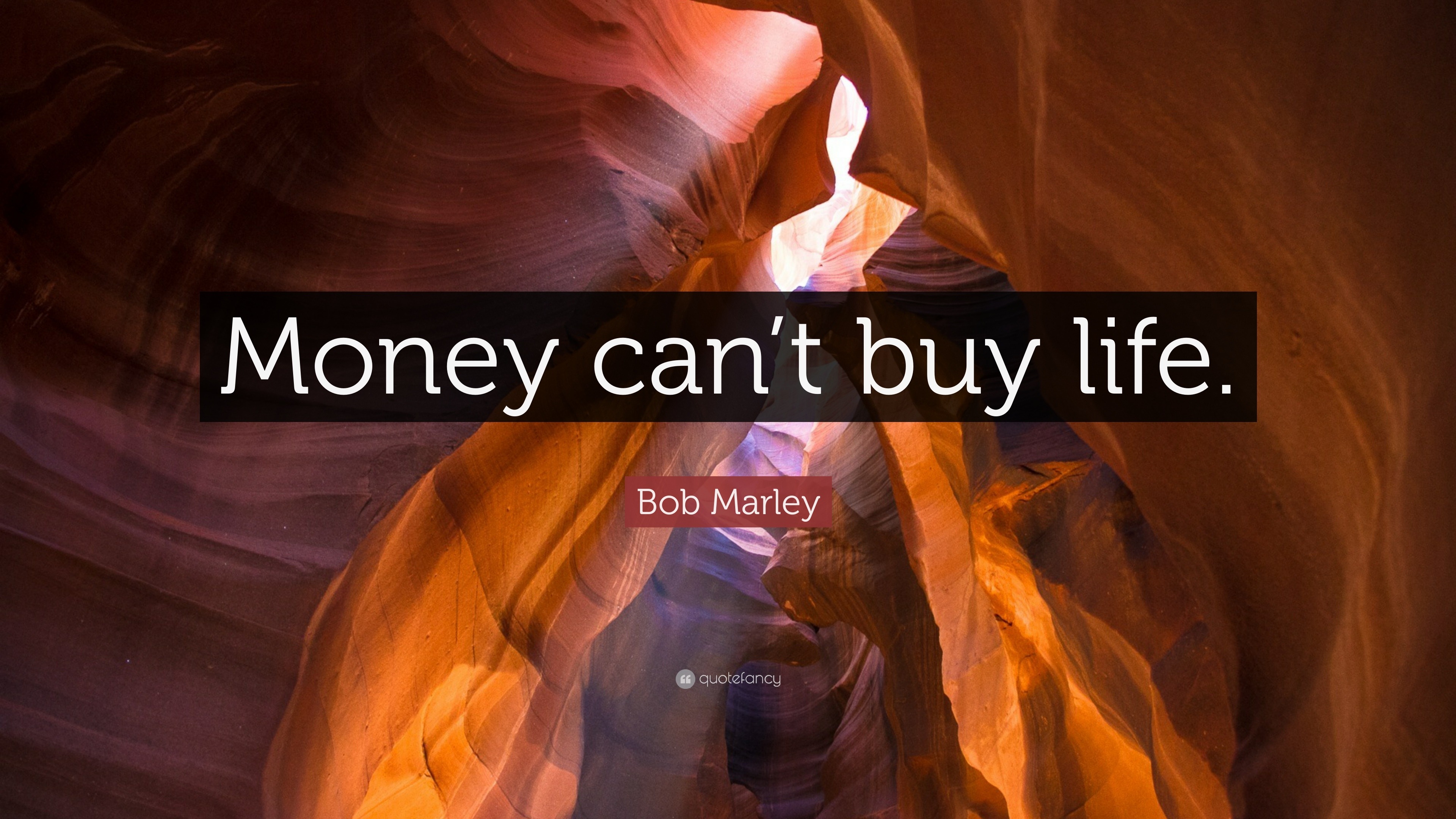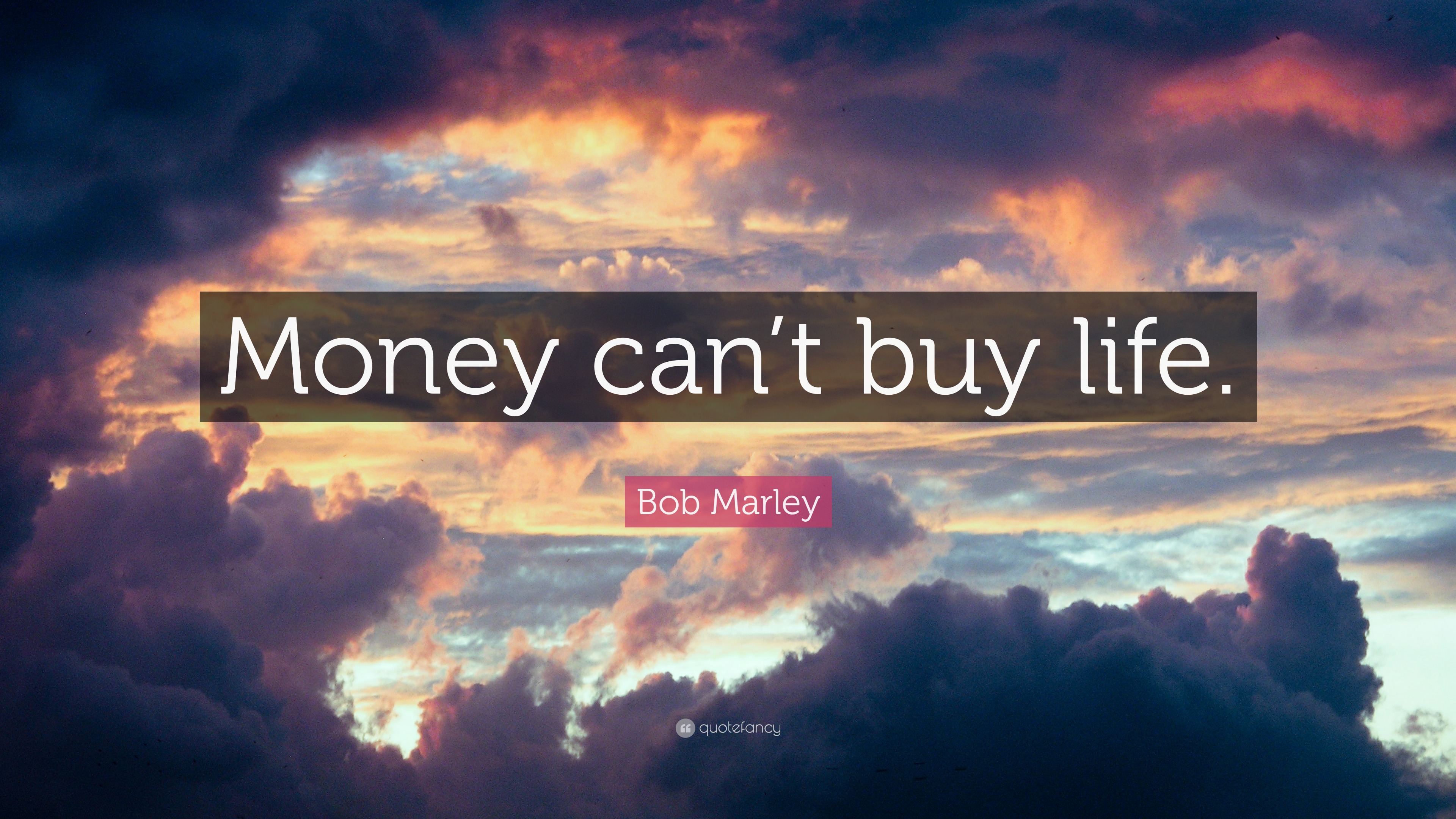Bob Marley And The Philosophy Of "Money Can't Buy Life": A Journey Through Reggae Legend's Teachings
You’ve probably heard the name Bob Marley, right? The guy with the dreads who sang about love, peace, and unity. But there’s more to him than just catchy tunes and chill vibes. Bob Marley wasn’t just about music—he was a philosopher, a revolutionary, and someone who believed in something deeper than material wealth. And that brings us to one of his most profound teachings: “money can’t buy life.”
This phrase isn’t just some random lyric from one of his songs. It’s a reflection of his worldview, his struggles, and his understanding of what truly matters in life. In a world obsessed with wealth and status, Marley reminded us that life is about connections, experiences, and purpose—not bank accounts or fancy cars.
So, why are we talking about this today? Because in a society where consumerism rules and everyone’s chasing the next big thing, it’s important to step back and rethink our priorities. Bob Marley’s message is timeless, and it’s something we all need to hear—especially in 2023. Let’s dive in and explore what this legend had to say about life, money, and everything in between.
- Sarah Bowmar Net Worth Unveiling The Hidden Gems Of A Rising Star
- Hugh Hendry The Maverick Investor Redefining Financial Wisdom
Table of Contents
- Biography of Bob Marley
- The Meaning Behind "Money Can't Buy Life"
- Bob Marley's Philosophy on Life and Wealth
- How His Music Reflects This Belief
- The Legacy of Bob Marley
- Impact on Modern Society
- Famous Quotes Related to Money and Life
- Data and Statistics About Wealth and Happiness
- Comparing Marley's Views to Modern Philosophers
- Conclusion: What Can We Learn?
Biography of Bob Marley
Before we dive into the deeper meaning of "money can't buy life," let's take a moment to understand the man behind the message. Bob Marley wasn’t just a musician—he was a cultural icon whose life was filled with struggle, triumph, and a deep sense of purpose. Born on February 6, 1945, in Nine Mile, Jamaica, Marley grew up in a world that was far from luxurious. His early years were marked by poverty and hardship, but these experiences shaped his worldview and inspired his music.
Here’s a quick rundown of his life:
Bob Marley's Early Life and Career
- Born to a Jamaican mother and a white father, Marley faced racial discrimination from a young age.
- He started his music career in the early 1960s, forming the Wailers with Peter Tosh and Bunny Wailer.
- His breakthrough came with hits like "No Woman, No Cry" and "One Love," which became anthems for peace and unity.
Key Achievements and Contributions
Throughout his career, Marley used his platform to advocate for social justice, equality, and love. His music wasn’t just entertainment—it was a call to action. He became a symbol of hope for millions around the world, especially in marginalized communities. Despite his fame, Marley remained grounded, always reminding people that material wealth isn’t everything.
- Barbara Handler The Iconic Figure Who Shaped Modern Real Estate
- Brandi Brandt The Rising Star You Need To Know About
Bob Marley's Data
| Full Name | Robert Nesta Marley |
|---|---|
| Birth Date | February 6, 1945 |
| Place of Birth | Nine Mile, Jamaica |
| Death Date | May 11, 1981 |
| Legacy | Reggae Legend, Advocate for Social Justice |
The Meaning Behind "Money Can't Buy Life"
Now, let’s talk about the heart of this article: the phrase "money can’t buy life." At first glance, it might seem like a simple statement, but there’s so much depth to it. Marley wasn’t just saying that money isn’t everything—he was pointing out that life is more than just material possessions. It’s about relationships, experiences, and the journey itself.
In a world where people are constantly chasing wealth, Marley’s message is a wake-up call. He believed that true happiness comes from within, not from external factors like money or status. This idea is rooted in his Rastafarian beliefs, which emphasize spiritual growth and community over material wealth.
What Did He Really Mean?
Let’s break it down a bit further. When Marley said "money can’t buy life," he wasn’t dismissing the importance of financial stability. After all, having enough money to meet your basic needs is essential. But beyond that, he argued that wealth doesn’t guarantee happiness or fulfillment. In fact, too much focus on money can lead to a life that lacks meaning and purpose.
Bob Marley's Philosophy on Life and Wealth
Marley’s philosophy on life and wealth was shaped by his experiences growing up in Jamaica. He saw firsthand how poverty could destroy lives, but he also understood that wealth alone couldn’t solve all problems. His music often reflected this duality, urging listeners to find balance in their lives.
Key Themes in His Philosophy
- Materialism vs. Spirituality: Marley believed that spiritual growth was more important than material wealth.
- Community and Unity: He emphasized the importance of coming together as a community to support one another.
- Purpose Over Profit: For Marley, life was about fulfilling your purpose, not accumulating wealth.
How His Music Reflects This Belief
Bob Marley’s music is a testament to his beliefs. Songs like "Redemption Song" and "No Woman, No Cry" carry messages of hope, resilience, and the importance of living a meaningful life. His lyrics often challenge listeners to rethink their priorities and focus on what truly matters.
Notable Songs That Reflect This Theme
- "Redemption Song": A powerful anthem about breaking free from mental slavery and finding true freedom.
- "No Woman, No Cry": A song about perseverance and the importance of love and support in tough times.
- "One Love": A call for unity and understanding, reminding us that we’re all connected.
The Legacy of Bob Marley
Even decades after his death, Bob Marley’s legacy continues to inspire people around the world. His music has been translated into dozens of languages, and his message of peace and love resonates with millions. But his influence goes beyond music—he’s become a symbol of hope and resistance for those fighting against injustice.
Marley’s teachings about life and wealth are more relevant than ever. In a world where consumerism is rampant, his message serves as a reminder that there’s more to life than material possessions. His legacy lives on not just in his music, but in the lives he’s touched and the movements he’s inspired.
Impact on Modern Society
Bob Marley’s influence extends far beyond the music industry. His ideas about life and wealth have inspired countless individuals and organizations to rethink their values. From activists fighting for social justice to entrepreneurs building businesses with a conscience, Marley’s message continues to shape the world we live in.
Modern Examples of His Influence
- Social Justice Movements: Marley’s music has been a rallying cry for activists around the world.
- Corporate Responsibility: Companies are increasingly recognizing the importance of giving back to their communities.
- Personal Growth: Many people use Marley’s teachings as a guide for living a more fulfilling life.
Famous Quotes Related to Money and Life
Bob Marley wasn’t the only one talking about the relationship between money and life. Throughout history, philosophers, writers, and thinkers have explored this theme. Here are a few famous quotes that echo Marley’s message:
- "The love of money is the root of all evil." — 1 Timothy 6:10
- "Wealth is the ability to fully experience life." — Henry David Thoreau
- "Money can buy you a fine dog, but only love can make it wag its tail." — Richard Bach
Data and Statistics About Wealth and Happiness
While Bob Marley’s teachings are rooted in philosophy, there’s also data to support his ideas. Studies have shown that beyond a certain point, more money doesn’t necessarily lead to greater happiness. In fact, relationships, health, and personal fulfillment are often more important factors in determining life satisfaction.
Key Findings
- According to a study by Princeton University, happiness levels plateau after an annual income of $75,000.
- A Gallup poll found that people who prioritize relationships and experiences tend to be happier than those who focus on wealth.
- Research from the World Happiness Report suggests that community and social connections are key to well-being.
Comparing Marley's Views to Modern Philosophers
While Bob Marley’s ideas might seem unique, they’re actually part of a broader tradition of thought. Philosophers like Aristotle, Confucius, and even modern thinkers like Brené Brown have explored similar themes. The common thread? Life is about more than just material wealth—it’s about connection, purpose, and growth.
Modern Thinkers Who Share Similar Views
- Brené Brown: Emphasizes the importance of vulnerability and connection in building meaningful lives.
- Martin Seligman: Founder of positive psychology, focuses on the importance of purpose and well-being.
- Yuval Noah Harari: Explores the impact of technology on human values and relationships.
Conclusion: What Can We Learn?
Bob Marley’s message about "money can’t buy life" is more relevant today than ever. In a world obsessed with wealth and status, it’s easy to lose sight of what truly matters. Marley reminds us that life is about connections, experiences, and purpose—not bank accounts or material possessions.
So, what can we take away from this? First, focus on building meaningful relationships. Second, prioritize experiences over things. And finally, remember that life is a journey, not a destination. By embracing these ideas, we can live more fulfilling, purpose-driven lives.
Now it’s your turn. What do you think about Bob Marley’s teachings? Do you agree that money can’t buy life? Leave a comment below and let’s start a conversation. And if you enjoyed this article, don’t forget to share it with your friends. Let’s spread the message of love, peace, and unity—one person at a time.
Article Recommendations
- Jason Aldean Net Worth 2024 A Deep Dive Into His Financial Empire
- Noel Fitzpatrick The Man Behind The Magic Of Saving Lives



Detail Author:
- Name : Mrs. Dortha Torp
- Username : shannon46
- Email : robel.nickolas@konopelski.com
- Birthdate : 2001-03-29
- Address : 63958 Thompson Gardens Dulceborough, TN 81080-0632
- Phone : +1-215-325-3476
- Company : Lueilwitz-Stark
- Job : Nuclear Power Reactor Operator
- Bio : Sunt velit rerum totam voluptate deleniti qui enim. Nulla nihil veniam est recusandae quibusdam magni porro. Nesciunt eius in eligendi est.
Socials
instagram:
- url : https://instagram.com/orphapaucek
- username : orphapaucek
- bio : Facere non animi quia ut recusandae. Omnis quae et nisi quod sint neque molestiae architecto.
- followers : 1774
- following : 2902
linkedin:
- url : https://linkedin.com/in/orpha.paucek
- username : orpha.paucek
- bio : Facere et velit illo est et.
- followers : 6956
- following : 207